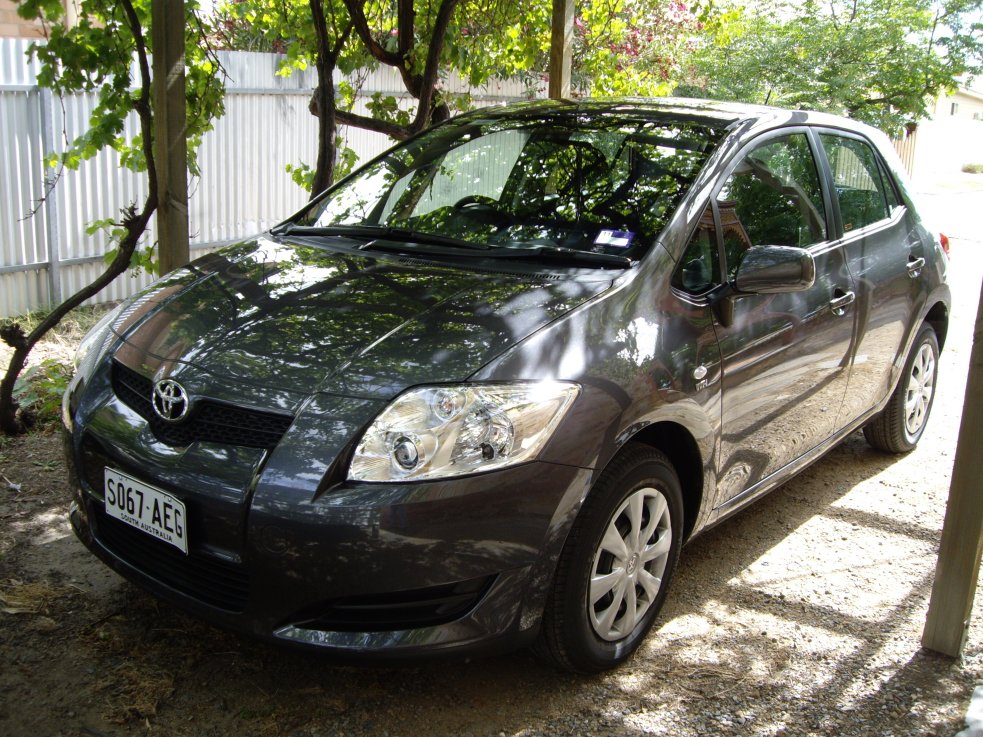
I bought an inexpensive car a couple of days ago, a 2009 Toyota Corolla with 19,700 miles on it. ?It’s in almost perfect condition. ?I paid ~$10,300 in cash to get it, inclusive of tax and tags.
Sound like a good deal? ?I think so, but let me give you the negatives:
- Only one key, and no manual.
- I had to spend some extra time looking for it, and had to travel 50+ miles twice to get it. ?(And a third time to get permanent plates…)
- The vehicle was previously a total loss, as its front end was badly mangled in an accident. ?Thus, it only has a salvage title, which limits the ability to finance the vehicle — few banks will lend against it. ?That doesn’t affect me, but it might affect others.
- Also, if?it gets wrecked, selling and re-titling a vehicle with a salvage title can be problematic. ?(Not that I expect that, but in 2007, I had a car totaled that was parked in front of my house, mostly on my yard.)
- I had to wait for it to be repaired.
But on the plus side:
- I traded away an older vehicle to a family that needed a large 15-seat van, at a price that helped them.
- My auto insurance costs have gone down.
- Gas mileage has gone up.
- I’ve bought three vehicles from this niche dealer before, and they have all worked out well. ?He selectively buys Toyotas and Hondas at auto auctions that have been deemed total wrecks by insurers, after analyzing them to see what it would take to make them as good as new. ?Then he fixes and sells them; that’s all he does.
- Because I’ve bought from this fellow before, when he heard I was in the market for a car, he mentioned that he had one car he had not listed yet — the one I bought. ?All of his deals are good, but this one more so. ?I’m flexible about what I drive, and so I’m happy to get a car in good condition for a good price.
Now, most of my readers don’t live in the DC area, so this won’t be so relevant to most of you. ?You might not have a niche dealer in your area doing something similar, assuming that you can live with the disadvantages, and get comfortable with the quality of the repaired vehicle.
This does point up the idea of going off the beaten track, and looking non-conventionally for a car, which is a decent-sized expense for most people. ?Flexibility helps. ?I look for cars that have good repair records on average, and am not wedded to any particular style. ?I think that older cars with relatively few miles are at present a niche that few actively target to purchase. ?Pricing models break down for them, because they are rare, almost all of them have a story behind them, and many people don’t like driving older cars, even if they are in very good condition.
You may have a better way of finding cars than I do — if you do, feel free to share it below in the comments. ?As it is, I’m not really a writer on personal finance, so this is a rare article that may help you practically in buying a car. ?A few final points:
- Befriend someone trustworthy who knows cars well, and is willing to help you. ?People who love cars often like helping others find a good deal.
- When you find someone who offers unusual value, stick with him.
- Be flexible. ?I’ve known a lot of people who have paid a lot more than they needed to for what my father called, “Fancy Rolling Stock.”
- Consider total costs of ownership. ?Older cars don’t need collision insurance. ?Some makes and models wear better than others, so repair costs could be lower for those cars. ?Analyze likely fuel efficiency.
Finally, if you have a deal that is?pretty good, be happy with it. ?Don’t overspend time looking for the absolute best deal. ?In my opinion,?the best is elusive, you can never truly know if you have it, and pretty good is attainable. ?And that is true for more than just buying cars — don’t let perfection become the enemy of the pretty good. ?(Shall I write about that for investment analysis? ?When do we ever get to certainty?…)
